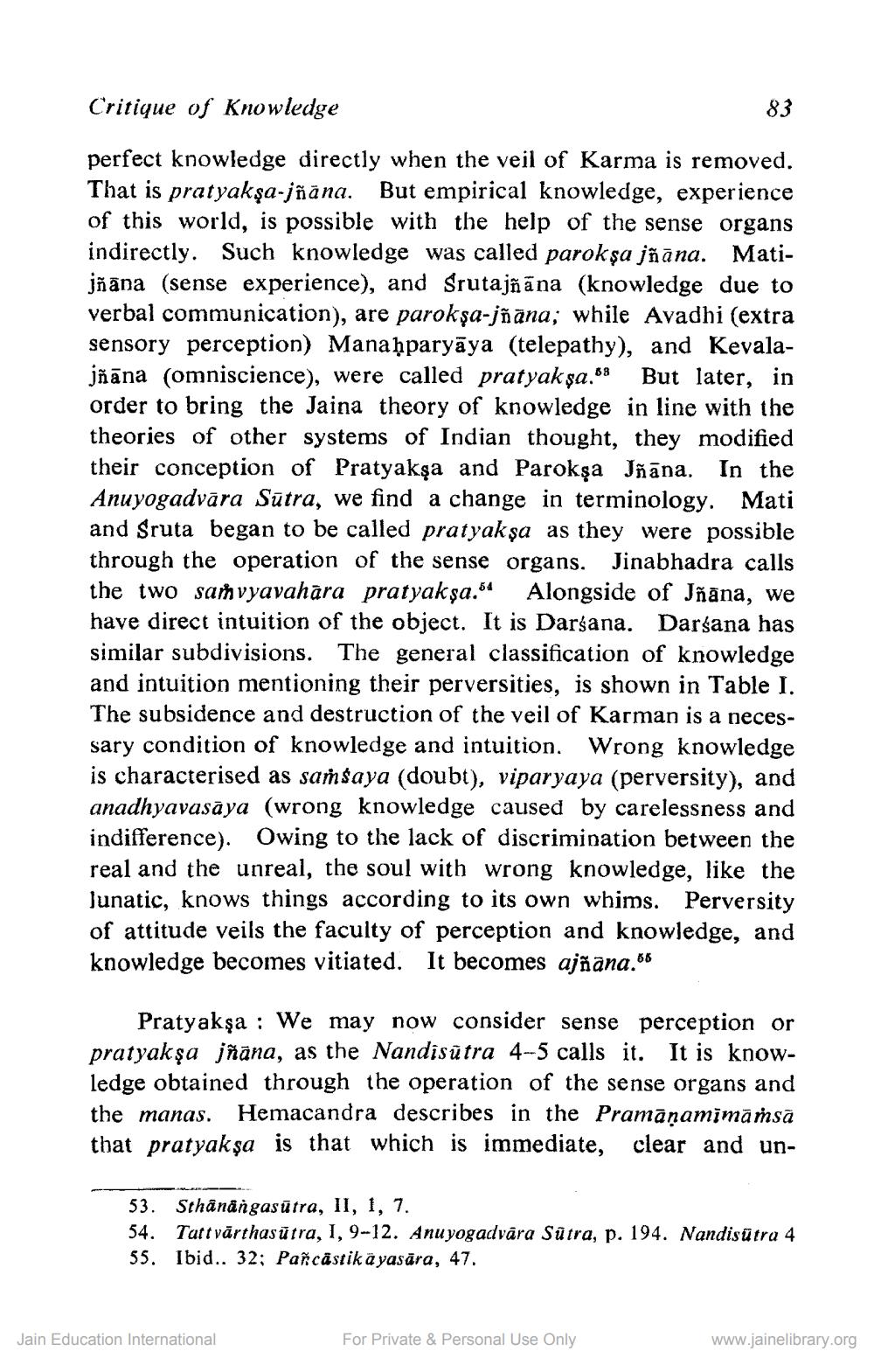________________
Critique of Knowledge
83
perfect knowledge directly when the veil of Karma is removed. That is pratyakşa-jñāna. But empirical knowledge, experience of this world, is possible with the help of the sense organs indirectly. Such knowledge was called paroksa jñāna. Matijñāna (sense experience), and Srutajñāna (knowledge due to verbal communication), are parokşa-jñana; while Avadhi (extra sensory perception) Manaḥparyāya (telepathy), and Kevalajñāna (omniscience), were called pratyak sa.58 But later, in order to bring the Jaina theory of knowledge in line with the theories of other systems of Indian thought, they modified their conception of Pratyakşa and Parokşa Jñāna. In the Anuyogadvāra Sūtra, we find a change in terminology. Mati and Sruta began to be called pratyakşa as they were possible through the operation of the sense organs. Jinabhadra calls the two sam vyavahāra pratyakşa.64 Alongside of Jñāna, we have direct intuition of the object. It is Darsana. Darsana has similar subdivisions. The general classification of knowledge and intuition mentioning their perversities, is shown in Table I. The subsidence and destruction of the veil of Karman is a necessary condition of knowledge and intuition. Wrong knowledge is characterised as saṁsaya (doubt), viparyaya (perversity), and anadhyavasāya (wrong knowledge caused by carelessness and indifference). Owing to the lack of discrimination between the real and the unreal, the soul with wrong knowledge, like the Junatic, knows things according to its own whims. Perversity of attitude veils the faculty of perception and knowledge, and knowledge becomes vitiated. It becomes ajñana.66
Pratyakşa : We may now consider sense perception or pratyaksa jñāna, as the Nandisūtra 4-5 calls it. It is knowledge obtained through the operation of the sense organs and the manas. Hemacandra describes in the Pramāṇamimāṁsā that pratyakşa is that which is immediate, clear and un
53. Sthânângasūtra, II, 1, 7. 54. Tattvārthasūtra, 1, 9-12. Anuyogadvāra Sûtra, p. 194. Nandisutra 4 55. Ibid.. 32; Pañcâstika yasära, 47.
Jain Education International
For Private & Personal Use Only
www.jainelibrary.org




